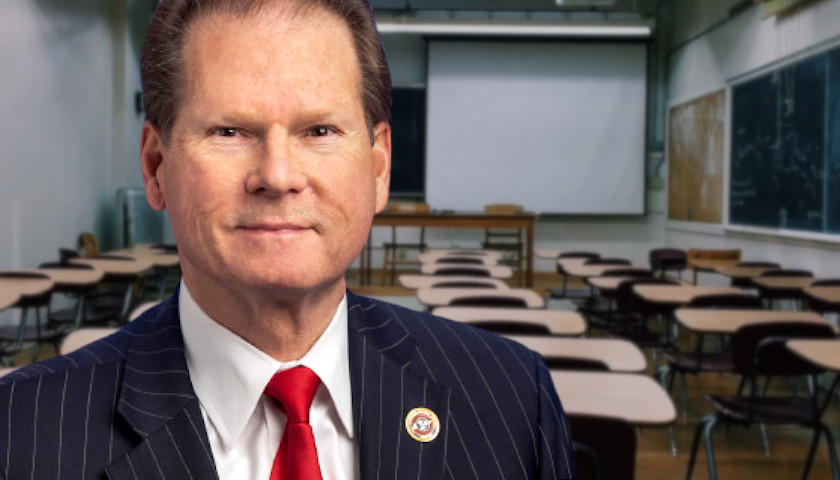People who attended regional town halls this fall to discuss Tennessee’s public education funding strategy want legislators to pump even more money into public schools, but one state legislator said that’s not a remedy for improvement.
Senator Joey Hensley (R-Hohenwald) said Wednesday that the state’s funding formula should change but it needs to recognize how many teachers and principals are needed.
“And the funding board should be guided toward the students and how much it costs [for them]. Everybody would like to have more funding, but that’s mostly not the answer for the state just to put in more funding. We have put in more funding every year for the last several years. We put more money in, and people still have good things that need to be funded, but that’s not the answer to the problem, just putting in more money,” Hensley told The Tennessee Star.
“That is certainly part of the issue, but that formula needs to change so it’s based on other things that each county looks at — the taxing and the income and the whole set of things they look at to fund. The funding formula is just funding so many positions. That doesn’t really recognize how many positions the school really needs. The funding formula needs to really recognize the real number of teachers and assistants and bus drivers and everything, speech pathologists and nurses the school needs and fund that accordingly.”
Staff at the Tennessee Department of Education (TDOE) this fall invited state residents to eight regional public town halls to discuss the state’s public education funding strategy.
State officials have not updated the state’s current school funding framework, also known as the Basic Education Program (BEP), in more than 30 years. BEP is the funding formula through which state education dollars are generated and distributed to Tennessee schools.
The Nashville-based WPLN reported Tuesday that some people who attended these town halls asked for more public school funding.
The majority of attendees who spoke at at least two town halls — one in Hendersonville and the other in Pulaski — were current or former teachers or had connections to the Tennessee Department of Education.
The current Basic Education Funding formula will remain in place until a new one is recommended to and approved by the Tennessee General Assembly.
– – –
Chris Butler is an investigative journalist at The Tennessee Star. Follow Chris on Facebook. Email tips to [email protected].






[…] they want legislators to pump even more money into public schools. One state legislator however, said that’s not a remedy for […]
At least someone realizes throwing more money at the problem isn’t the solution.
Part of the problem is the breakdown of the family unit. Another part is removing any signs of morality from public schools under the misuse of the Establishment clause.
The last part is most of society is caught up in the toilet bowl of the internet, aka social media. Social media is the-worst-thing that has happened to us as a society. It allows us to act like a horse’s ass, saying anything we want, while in the safety of our own homes, with little to no repercussions.
The kids are being raised by the internet. The parents want to be cool. Any type of discipline is considered child abuse. Yeah, no wonder the public schools are such a train wreck.
/rant
Nope. When I went to school we had only a chalk board and no air conditioning. Fascinatingly, some of us became doctors, lawyers and engineers.
Incentivized Fraud is a better name for education funding. The inability to account for the money they are responsible for is reason enough not to give them more. The inability to improve the basic reading level of students is another. Any organization that spends as freely as this one with little or no oversight is in need of wholesale change. They lack real leadership and the ability to actually educate.
.